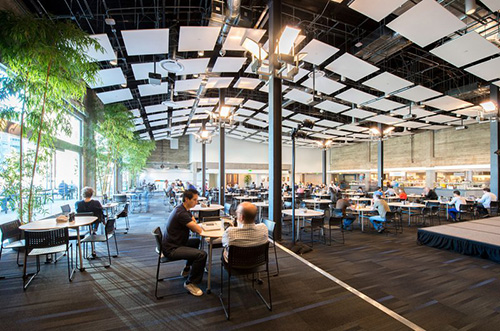Check this out: Glassdoor released a full report this week on “The Top Companies For Culture And Values,” and 11 of the top 25 spots went to tech-type companies. Twitter was No. 1. Google was No. 3. Facebook was No. 5. Etc, etc.
You do see a little bit of the general “food industry” — H.E.B. and Wegman’s made this list, as well as Chick-Fil-A (which admittedly is a different part of the food industry than Wegman’s is) — on this list, but there is nothing like tech. Riverbed Technology, which most random people have probably never heard of, came in fourth, for example.
I think the idea of a standard tech corporate culture is pretty cool — Nerf Guns and jeans and t-shirts and all that. I’m sure there are guys back in the I-95 corridor (sans maybe Boston) who look at that and say, “Pfft. That isn’t ACTUAL work.” But it works for a lot of people — I met a Seattle-based guy recently who told me he only ever tries to work for organizations structured like that, as opposed to a more corporate vibe — although you can make a case that it’s actually not that effective in the broader retention dynamic. Here’s the thing: as recently as 2012, top people were leaving Twitter en masse. Part of the problem with a “start-up vibe” is two-fold: if you’re an actual start-up, eventually you need to make money — or your top people will just go to places that can pay them. (Or the whole thing will be acqui-hired.)
The other problem is that the notion of a free-form culture can lead to some organizational confusion here and there — and as people get older and have more responsibilities in their lives, they tend to want a little more structure within the context of what they do at work.
Consider: by all accounts Google is one of the best places to work in America — yet it also has one of the highest turnover rates of major companies.
There’s also an issue in the tech space, of course, that the best people get poached all the time; if you’re a good engineer or database guy or whatever it may be, more money can always be waiting somewhere else.
Sometimes I wonder this: for a long time, as the auto industry dominated the U.S. working scene (and real millionaires were everywhere in Michigan), all our deification of “best corporate structure” or “best ideology” seemed to be around Detroit. Now, as Silicon Valley has become the center of innovation and real (mostly real) young wealth in America, all our ideas about what makes a company attractive to potential employees are rooted in San Francisco. That’s not the only correlation between SF and Detroit.
Point being: do we just look to the success story of the moment and say, “That — that right there — is how to do things?”
If so, that’s a little bit sad. We should probably interject some more context into the whole discussion.
I’ve said this before and I’ll now say it one more time with regards to any — any — organizational structure: it’s completely based on what works for YOUR organization. It’s not necessarily what’s hot at the moment. It’s based on the people you have, the people you think you’ll have in 2-3 years, and the like. That’s how you determine the structure; the structure needs to fit the talents in place. If you’re trying to bend talents to structure, well, you better start firing and re-recruiting.
